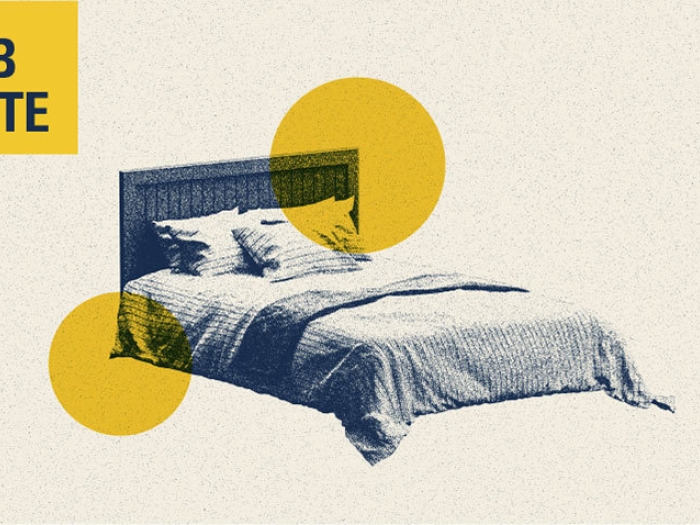A study finds those who had gender-affirming therapies were less likely to have sleep disorders, suggesting a possible protective effect.
Transcript
Host:
Welcome to the Michigan Medicine News Break, your destination for news and stories about the future of healthcare.
Today, transgender youth and teens are more likely to have sleep disorders. A study finds those who had gender-affirming therapies were less likely to have sleep disorders, suggesting a possible protective effect.
Teens and young adults who are transgender are four times more likely to have a sleep disorder compared to cisgender youth, a Michigan Medicine led study finds. Researchers analyzed claims data from more than 1.2 million young people, aged 12 to 25, of which 2,603 identified as transgender or gender non-conforming. Results published in the Journal of Clinical Sleep Medicine reveal that transgender youth are 5.4 times more likely to have insomnia and three times more likely to have sleep apnea or other sleep disorders.
Sleep health has rarely been examined in transgender and gender non-conforming youth, but these results show a concerning number of individuals with disorders that harm sleep quality. Says first author Ronald Gavidia, M.D., M.S., sleep medicine physician in the University of Michigan Health Department of Neurology's Division of Sleep Medicine and an assistant professor of neurology at U of M Medical School.
"Given this higher prevalence of sleep disorders in relation to cisgender youth, clinicians should consider screening and testing this population for such disorders," Gavidia said.
Reports on transgender youth and adults have shown a high prevalence of depression and anxiety symptoms, which are known to affect sleep quality and health. Researchers suspect suboptimal mental health may contribute to the association between transgender and gender non-conforming identity and insomnia.
“Transgender and gender-nonconforming identity may precede mental health disorders and both influence insomnia diagnosis,” said senior author Galit Levi Dunietz, Ph.D., M.P.H., epidemiologist in the Department of Neurology’s Division of Sleep Medicine and assistant professor of neurology at U of M Medical School.
Of transgender youth in the study, more than half had pursued gender affirming therapy. That group was half as likely to have any sleep disorder than transgender individuals who did not pursue the therapy.
Gender-affirming therapy, the authors conclude, could be protective against worsening sleep health, brought about by psychological stressors from prejudice and discrimination against the transgender community.
"As mood disorders and insomnia have a bidirectional relationship, gender transition through affirming therapies could improve mental health, which in turn may decrease the proportion of insomnia by improving gender dysphoria, poor mood, and minority stress," Gavidia said.
Researchers say future studies should further examine the burden of sleep disorders prior to and following gender-affirming therapy for these populations.
For more on this story and others like it, visit UofMHealth.org/HealthBlogs. You can subscribe to the Michigan Medicine News Break wherever you listen to podcasts.

Listen to more Health Lab podcasts - a part of the Michigan Medicine Podcast Network.






